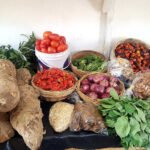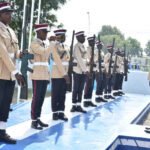United Nations Special Political and Decolonisation Committee says it has received numerous petitions alleging human rights violations by the Popular Front for the Liberation of Saguia el‑Hamra and Rio de Oro ((POLISARIO Front) in Tindouf refugee camps in Algeria.
The committee said it received over 30 petitions alleging that women in Sahrawi refugee camps are detained against their will and subjected to sexual abuse by the Polisario Front.
The UN considers Western Sahara a non-self-governing territory in the absence of a final settlement.
About 20 percent of the territory is controlled by the self-proclaimed Sahrawi Arab Democratic Republic, while the remaining 80 percent is occupied and administered by neighbouring Morocco.
Petitioner Pablo Zardini, from John F. Kennedy Argentine University, called on the international community to intervene and put an end to the alleged human tragedy going on in the aforementioned camps.
‘Women there are detained in camps against their will and subjected to sexual abuse by the POLISARIO Front, some are separated from their children who are sent to far away countries’, Zardini said.
‘Moreover, the POLISARIO [Front] imposes early marriage on women, prevents family planning, forcing young mothers to carry their pregnancies without access to medical care. The situation is even more dire for single parent families’.
Also, El Fadel Mohamed, from the Human Rights Defenders, accused the POLISARIO Front of torture, slavery and carrying out forced disappearances.
‘Trucks with food and medicine en route to the camps are diverted by POLISARIO officials and used to sustain their terrorist activities, the violation of the ceasefire agreement reveals a link between the POLISARIO Front and terrorist groups operating in the area’, Mohamed said.
A petitioner from the African Forum for Research and Studies in Human Rights, Khadija Ezaoui, recalled her childhood in the territory and her subsequent career as a renewable energy engineer.
She said the region was witnessing a unique development momentum to which Sahrawi women contribute as successful professionals.
Nevertheless, Ezaoui agreed that many Sahrawi women remain sequestered and oppressed in the Tindouf camps.
Another petitioner, Romina Perino, however offered a contrasting view of life in the Tindouf camps, describing Morocco’s claims that the camps are dangerous as completely untrue.
Recent tensions over the disputed region have led to severing of diplomatic ties between Algeria and Morocco.
Algeria has been hosting Sahrawi population in refugee camps since 1975.
Source: United Nations
Photo source: YoTuT





